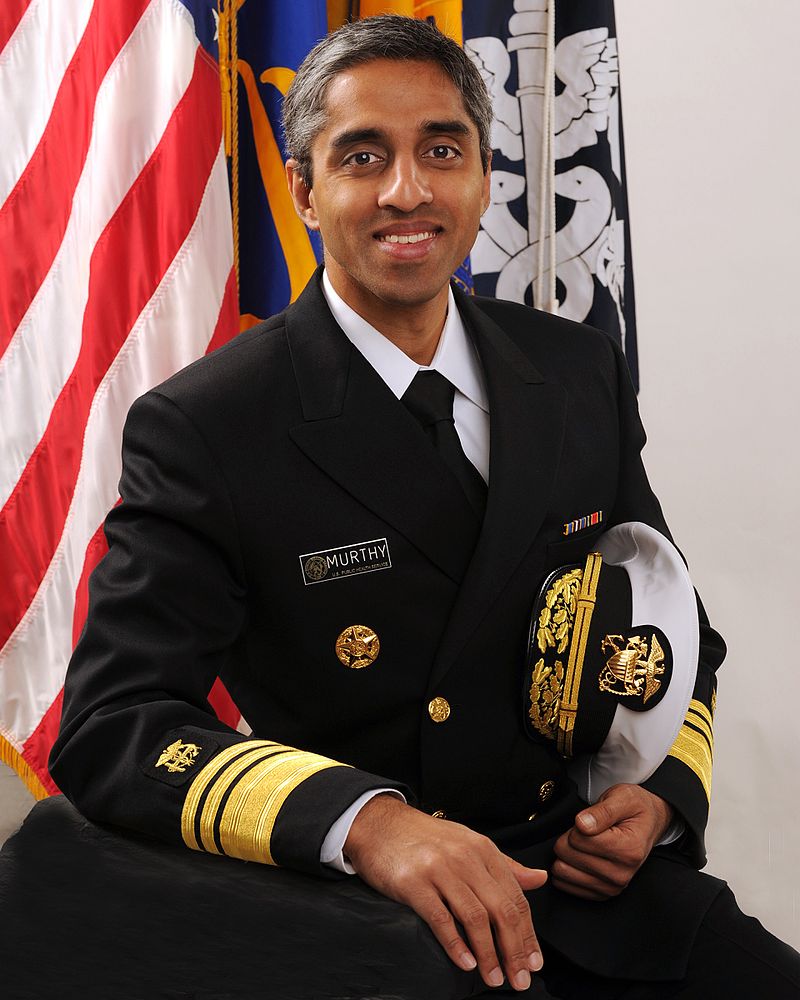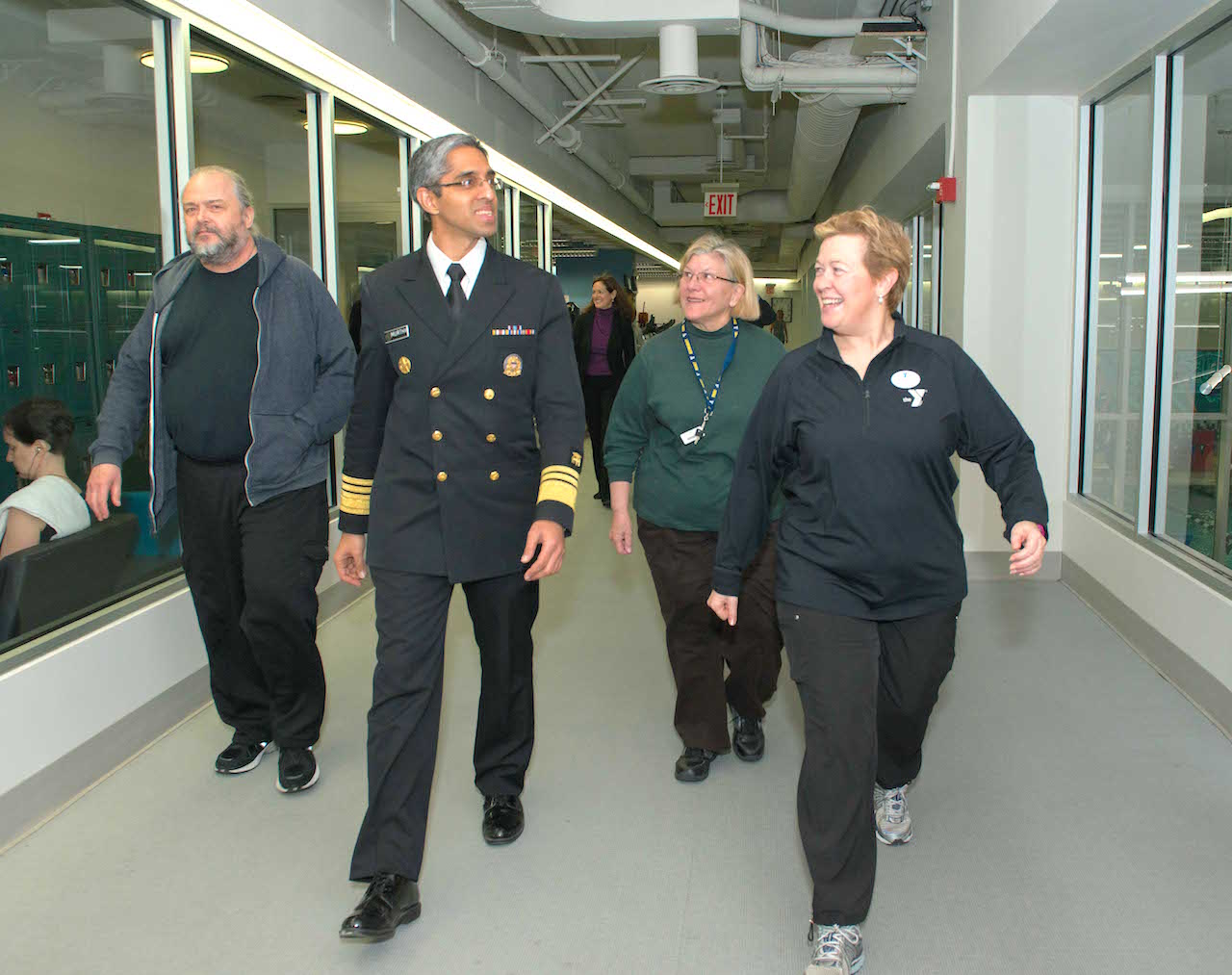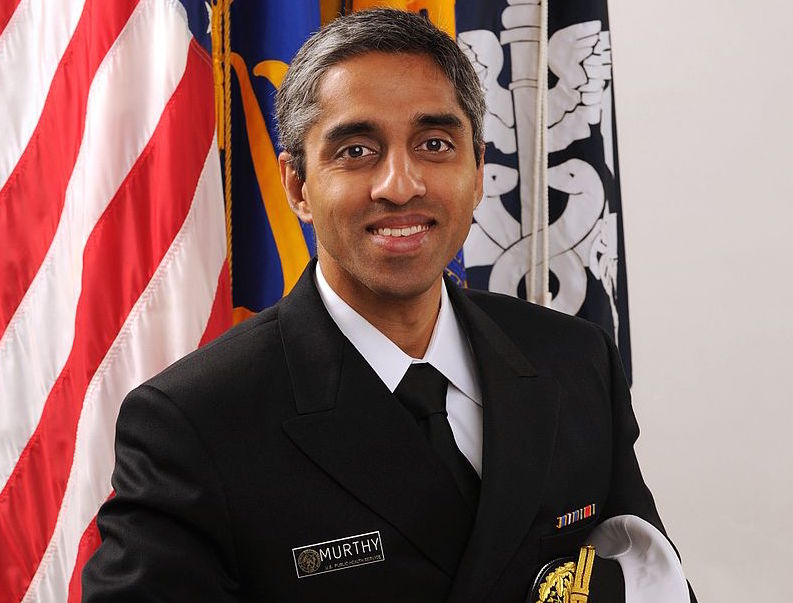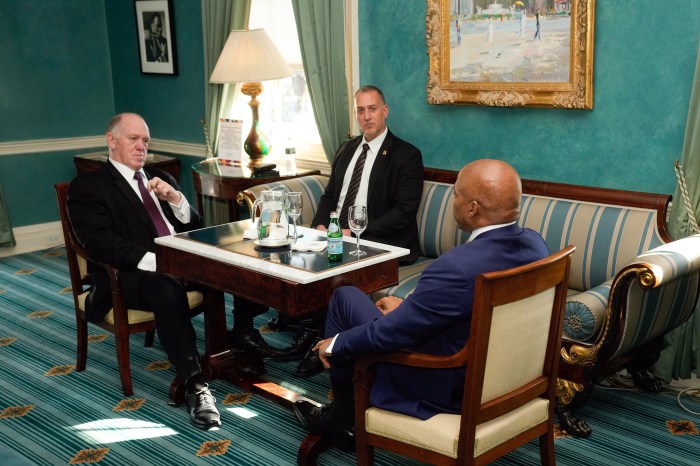 BY ALBERT AMATEAU | U.S. Surgeon General Vivek H. Murthy told the annual community breakfast of the Greater New York YMCA last week about the efforts of the U.S. Public Health Service to promote the nation’s health by encouraging walking and other physical activity.
BY ALBERT AMATEAU | U.S. Surgeon General Vivek H. Murthy told the annual community breakfast of the Greater New York YMCA last week about the efforts of the U.S. Public Health Service to promote the nation’s health by encouraging walking and other physical activity.
Dr. Murthy, whose duties include overseeing the U.S. Public Health Service, gave the keynote address at the Feb. 12 event, held this year in the gymnasium under the walking/running track of the McBurney YMCA, at 125 W. 14th St.
Among elected officials at the ninth annual event was Richard Gottfried, chairperson of the New York State Assembly’s Health Committee, who introduced Vice Admiral Murthy, whose title derives from his leadership of the uniformed U.S.P.H.S. Commissioned Corps. State Senator Brad Hoylman and Mary Bassett, the commissioner of the city’s Department of Health, were also among the guests.
“The YMCA has been an important partner in the U.S.P.H.S. call to action on walking and community walking,” said Murthy. “We’re working with the Y to bring generations together to walk to improve health,” he added, noting that he recently convinced his mother to begin a walking program.
Murthy said the health benefits of walking have been proven.
“Just 22 minutes a day of brisk walking can reduce a person’s risk of getting diabetes by 30 percent,” he said.
Appointed to his post just more than a year ago, Murthy, 38, said that he has been traveling across the country to learn about people’s health concerns, and he found that addiction, diabetes and heart disease were among the top problems.
How to support options that promote good health for everyone has been the focus of the U.S.P.H.S.
“The culture has viewed healthy options in food and activity as pain,” Murthy said. “We’re trying to change that view from pain to preference.”
One indication of that cultural shift has been the rise of the private sector programs, like Healthy Chef, that offer healthful meals online. Moreover, the U.S.P.H.S. is encouraging schools to offer fresh fruits and vegetables in lunch menus, which students are beginning to prefer. The agency has also been supporting local efforts to make neighborhoods more walkable by improving street lighting, which deters violence.
Murthy said the agency has achieved some success is convincing merchants to lower the price of fruits and vegetables and raise the price of junk food.

Prejudice, poverty and social isolation contribute to unhealthy choices, and reducing those conditions on the national and local levels will have a positive effect on the nation’s health, Murthy said.
In addition, he said, removing the stigma of mental illness is important to encourage people to seek help. More efforts must be made to reduce childhood obesity, he said.
“It’s true that the incidence of obesity has leveled off recently, but it’s still too high among children,” Murthy said. Making physical activity a significant part of education is also important in reducing the incidence of childhood obesity, he said.
“We should start encouraging healthy choices earlier and earlier,” he stressed. “Children would influence their families and help shift the culture for the next generation.”
Murthy, raised in Florida by immigrants from India via the United Kingdom, graduated from Harvard and earned his M.D. and M.B.A. degrees at Yale. At age 17, Murthy and his sister co-founded VISIONS, an H.I.V./AIDS education program in India and the U.S.
In response to a question from state Senator Hoylman about electronic cigarettes, Murthy said he hoped the U.S. Food and Drug Administration would make a policy decision soon about e-cigarettes.
“It’s not entirely true that the smoke is pure water vapor,” Murthy said. “It does contain nicotine and may contain other substances.”
Work also must also be done to determine if e-cigarettes help people give up smoking, the surgeon general added.
“Some say they helped them to quit, but others say they now use e-cigarettes as well as regular cigarettes,” Murthy noted.
“We live in an extraordinary nation,” Murthy said in conclusion, “with intelligent and caring people. I see them everywhere. It can be easy to forget the role of good and compassionate people, but we can recognize and value it. We saw it in the healing of New York City after 9/11. We can save more lives if we invest more in prevention. It’s time for a new generation, defined not by age but by spirit. We need a new contract for a new vision. I believe it will happen with people who come together and make it so.”





































